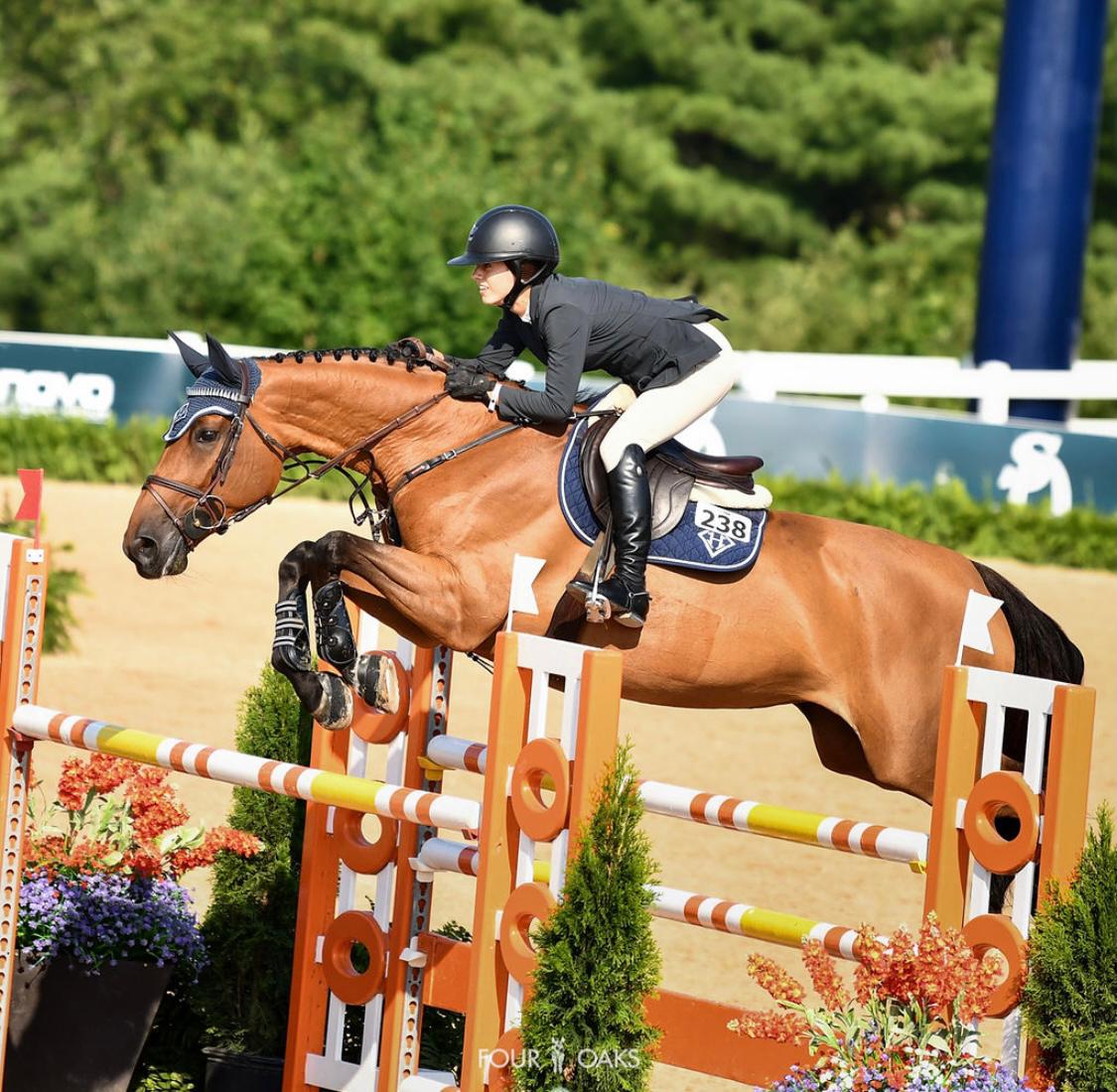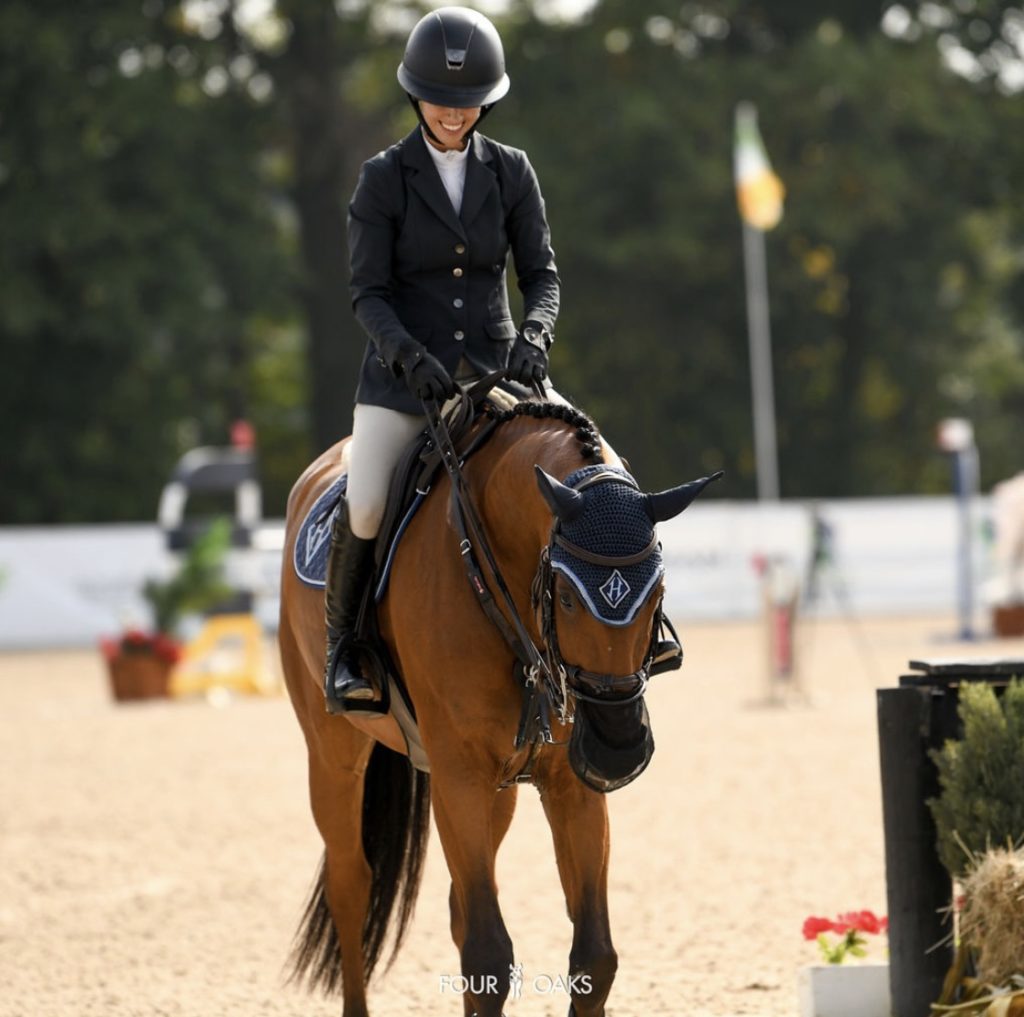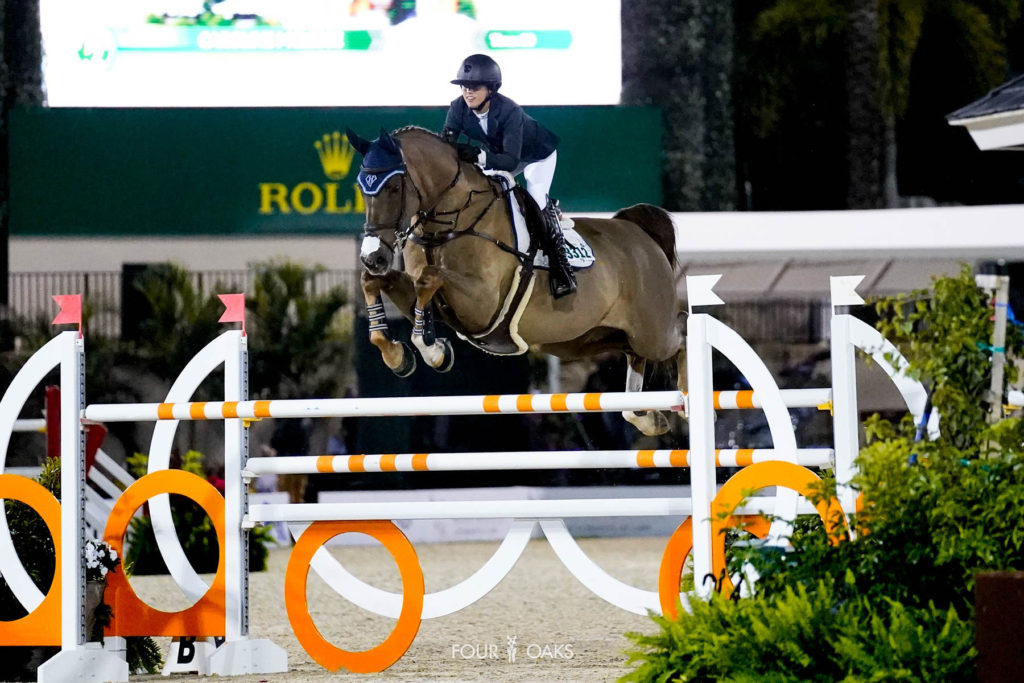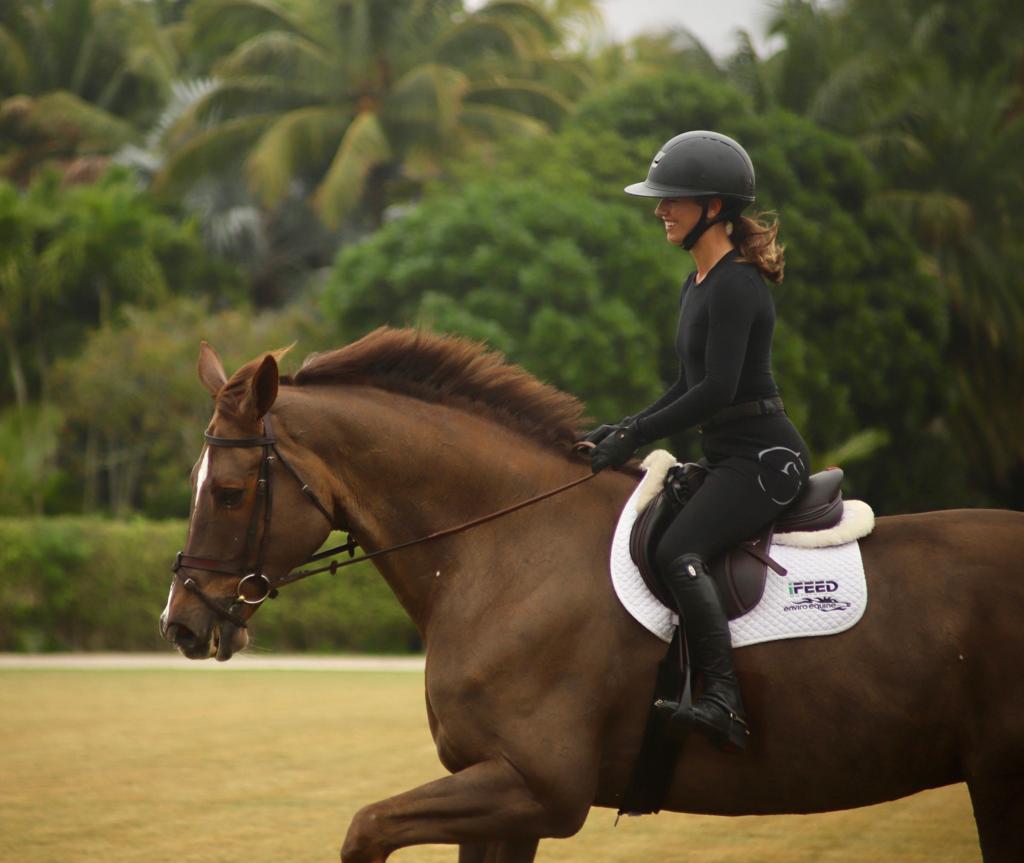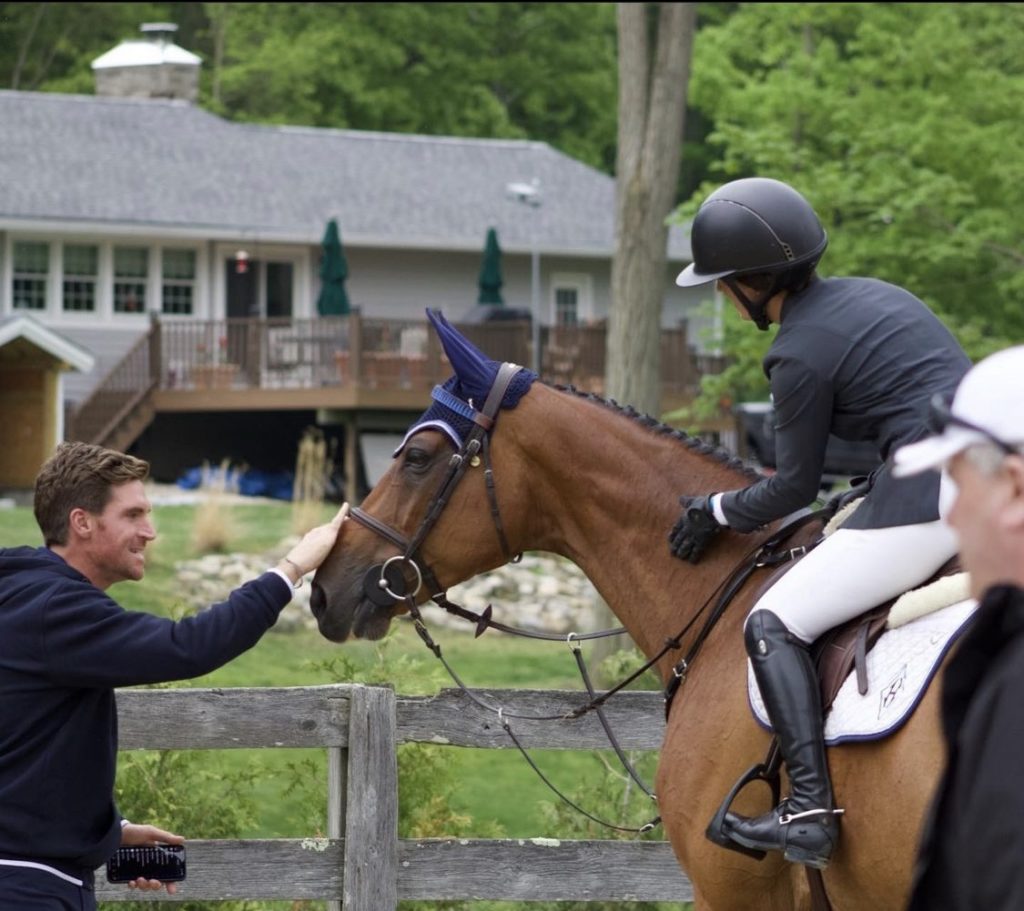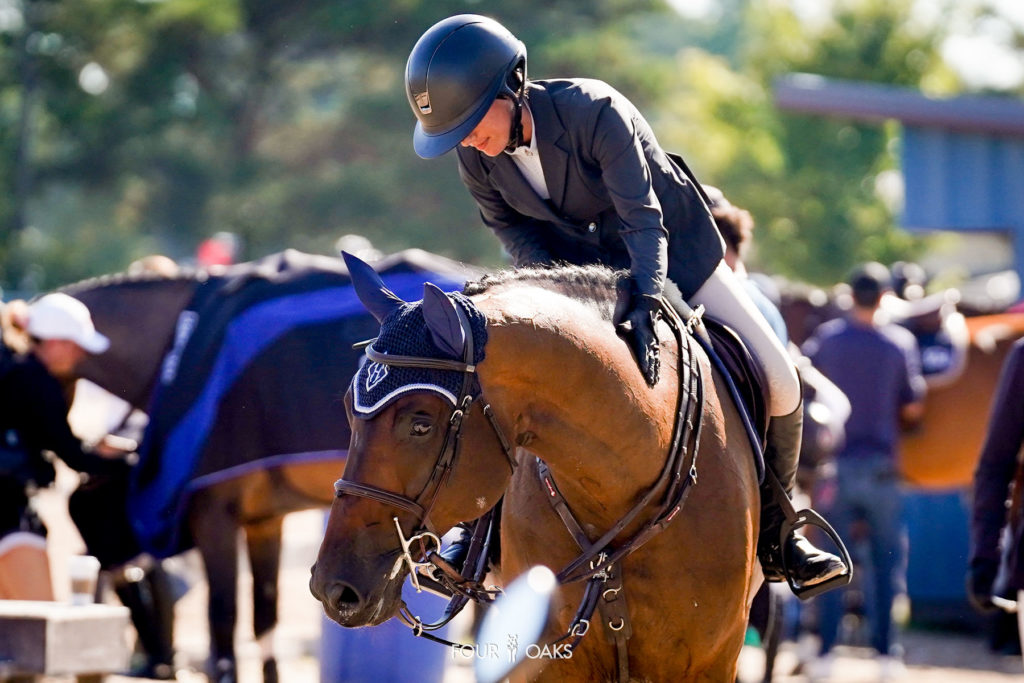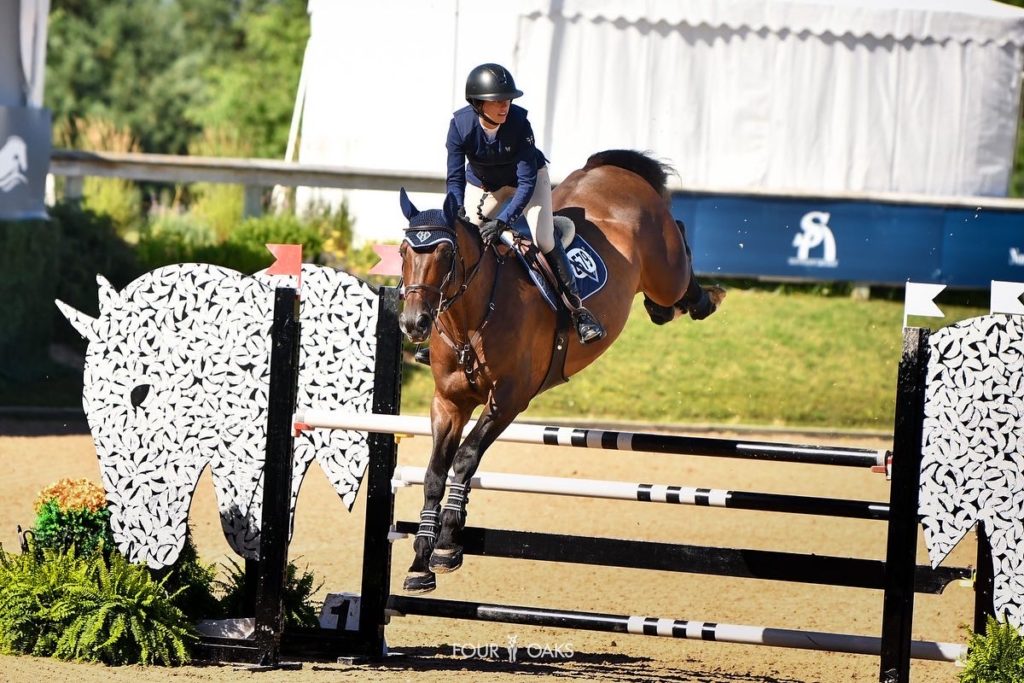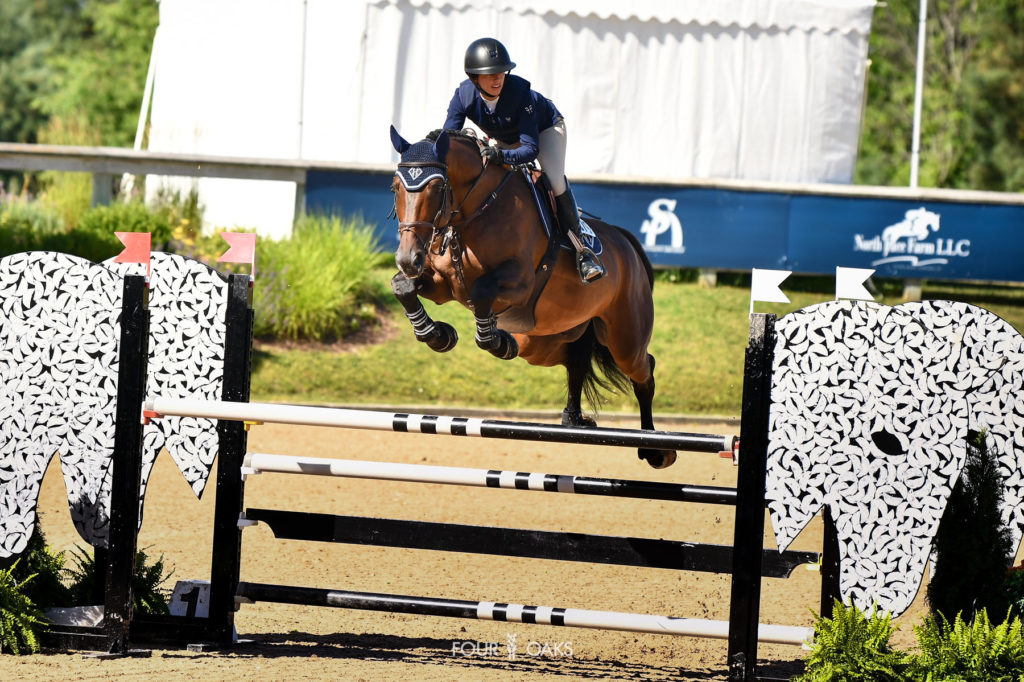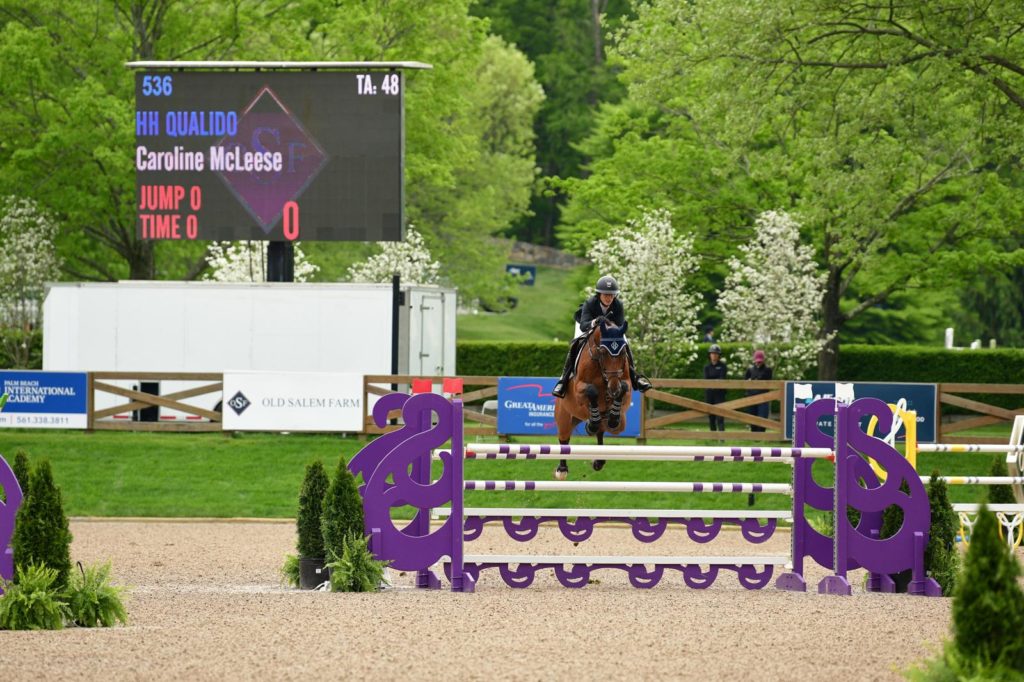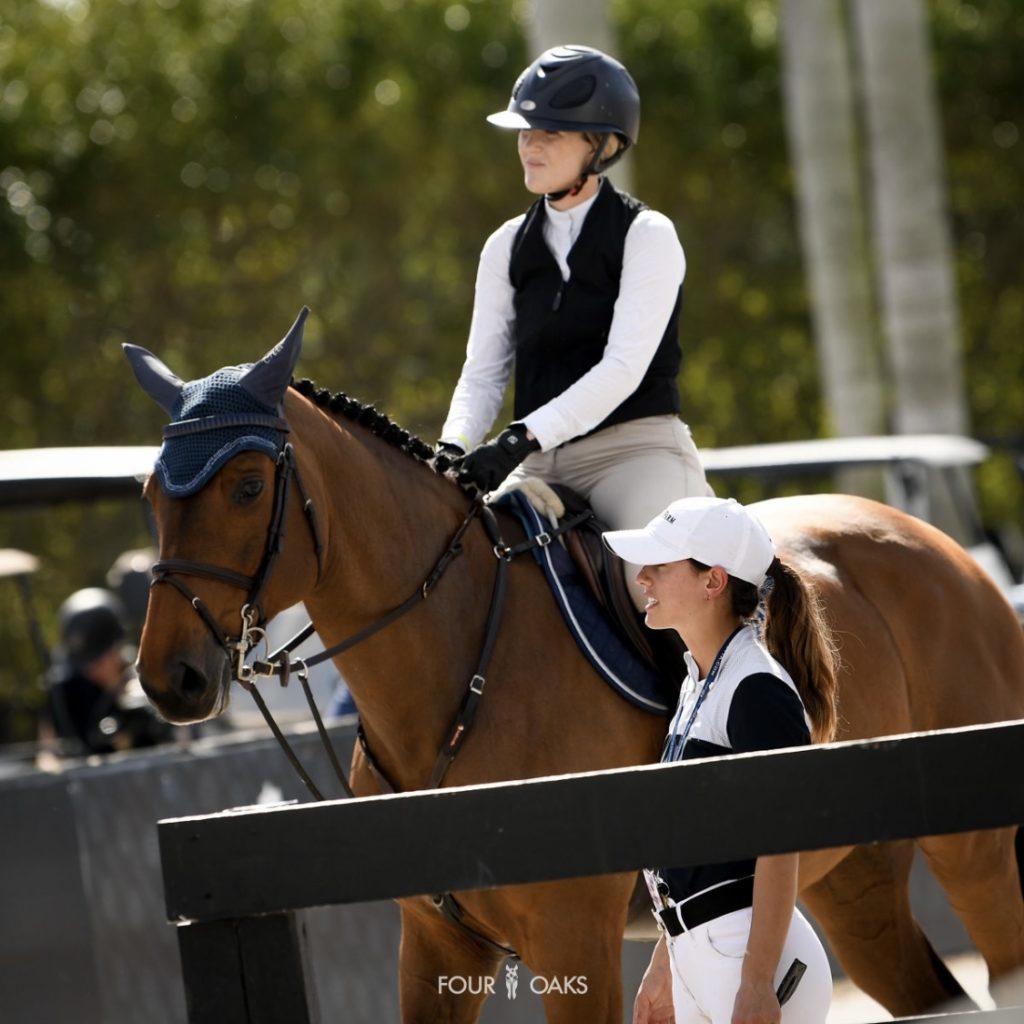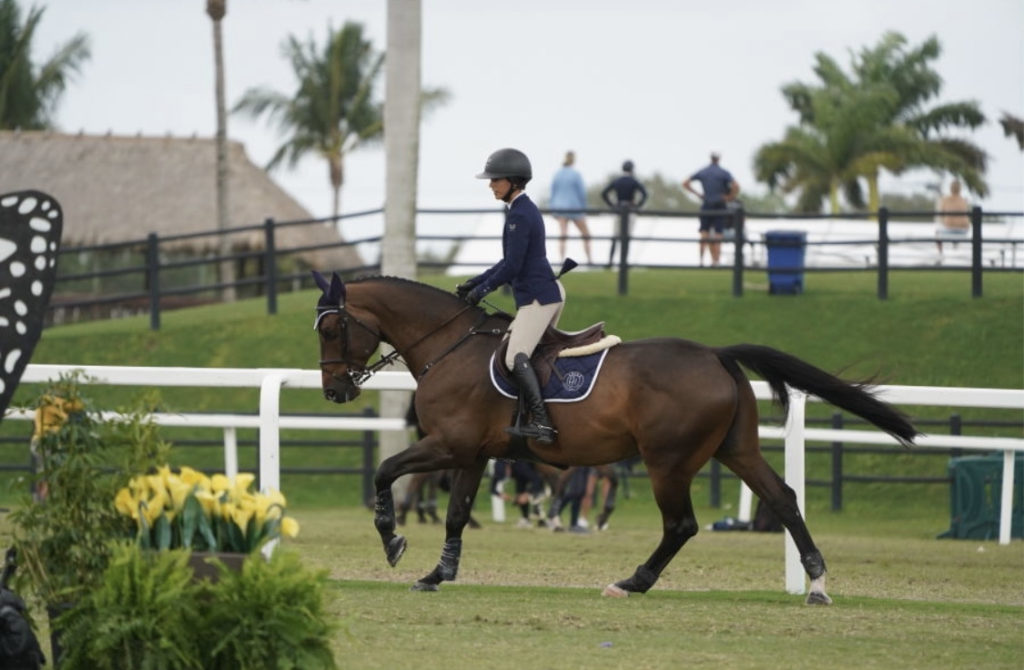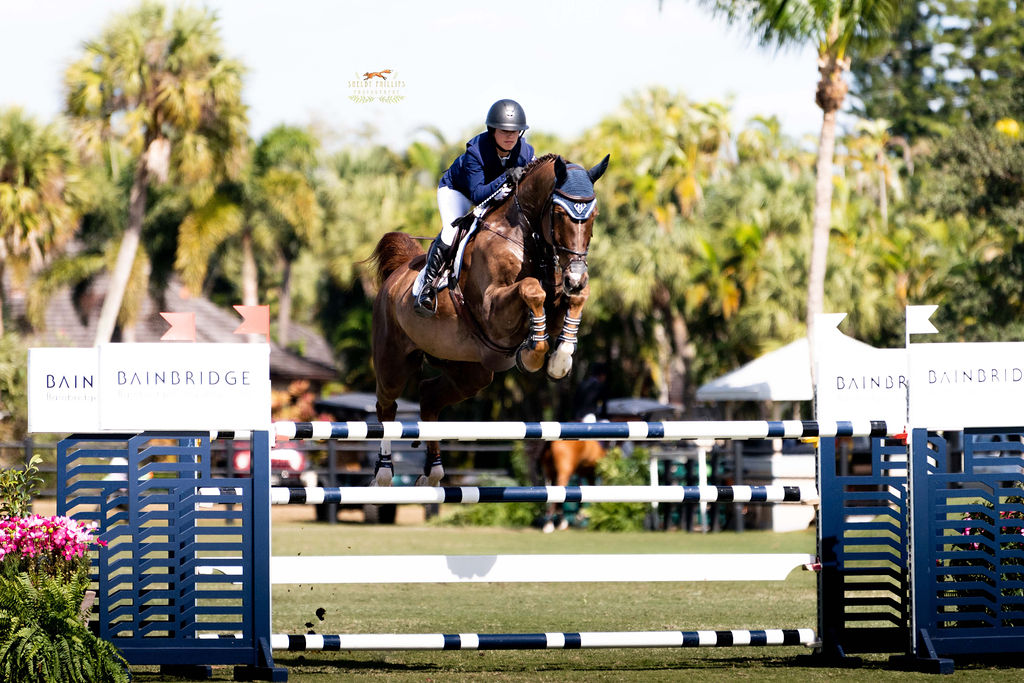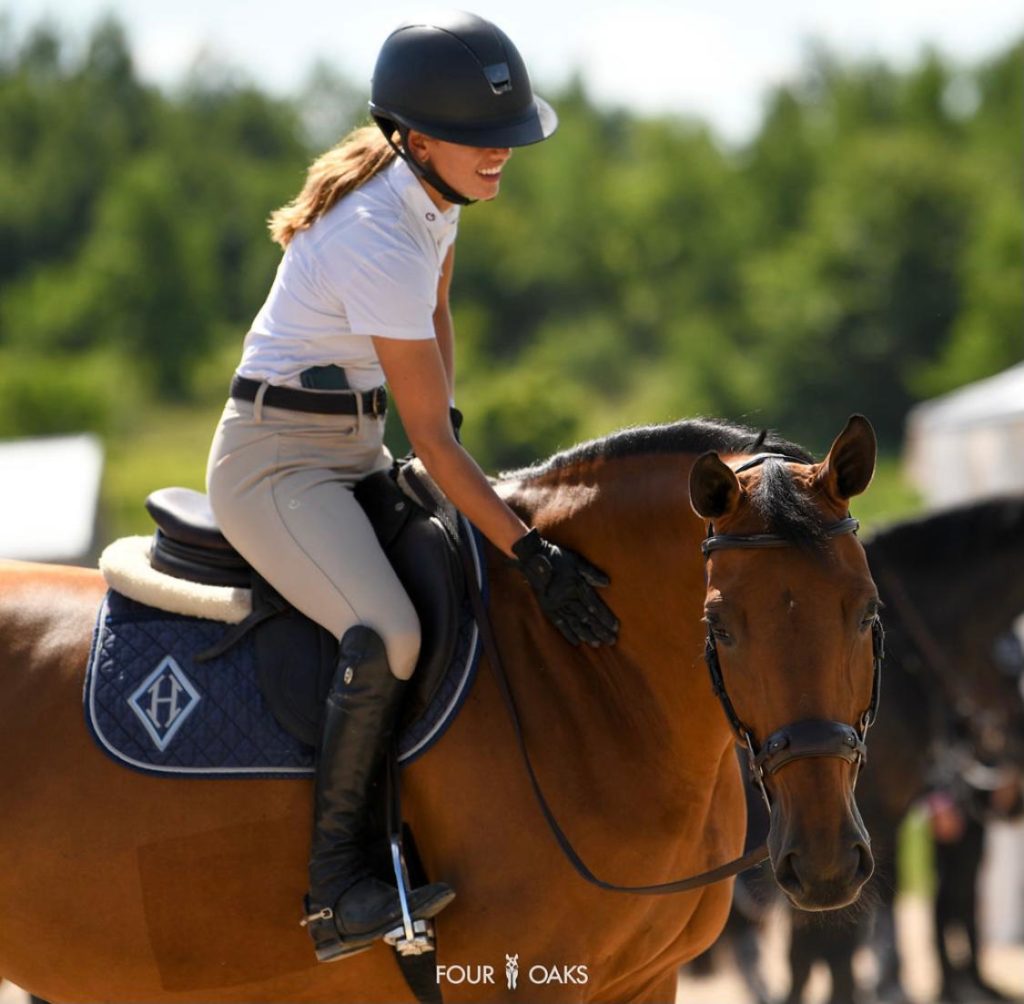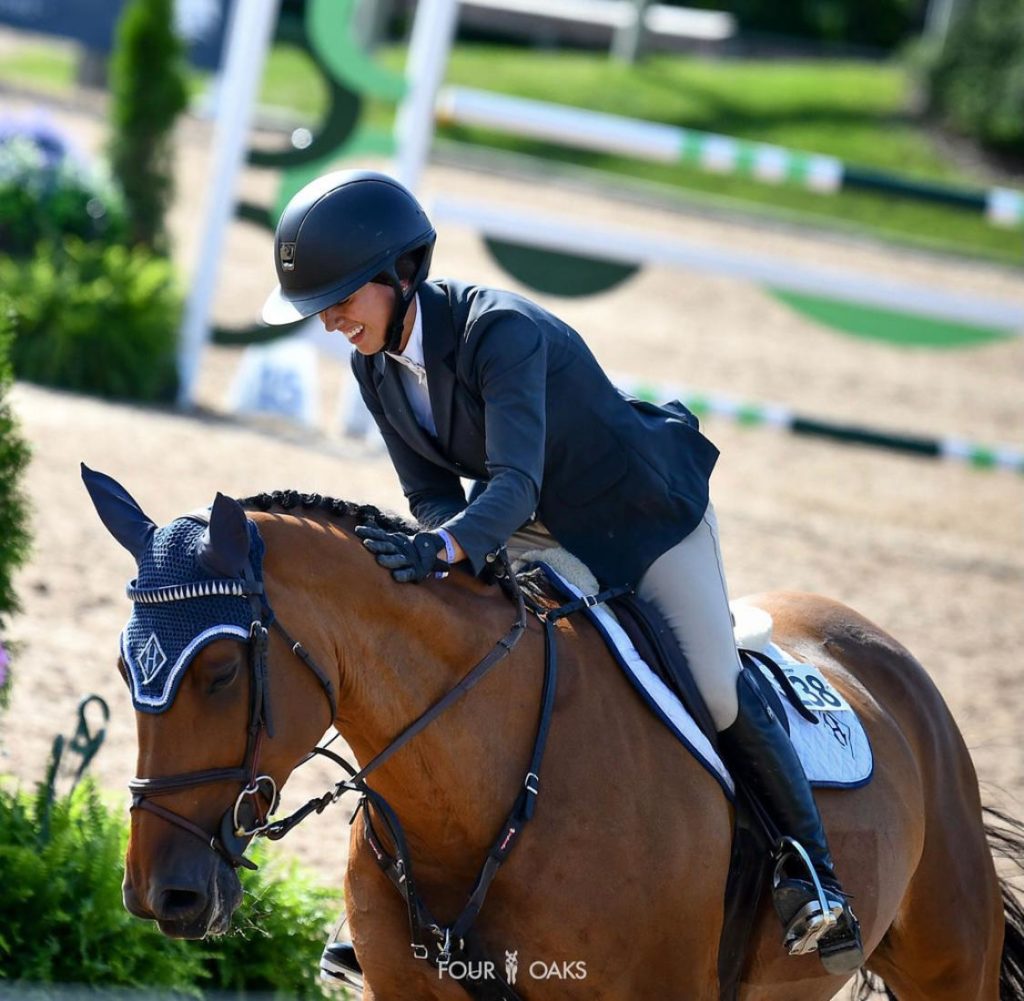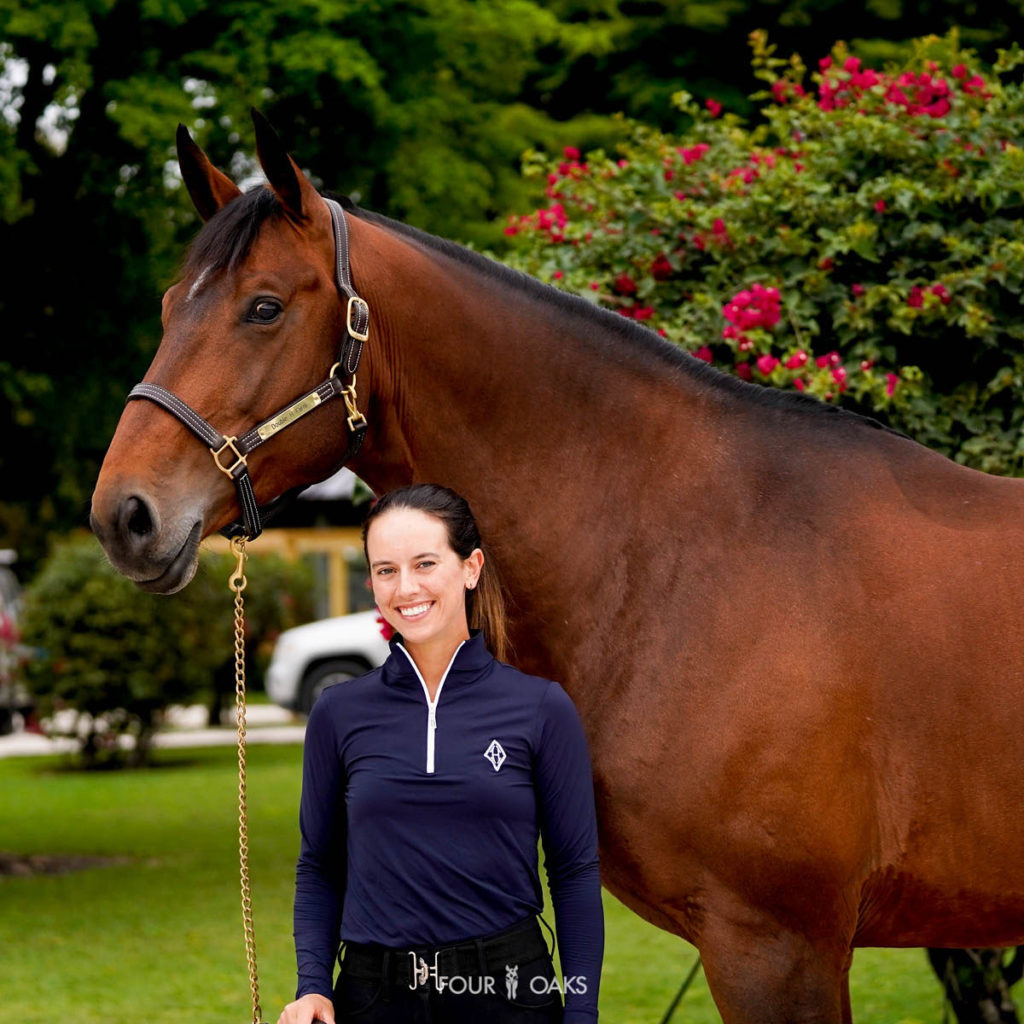Where are you from, based, and currently located?
I grew up in Omaha, Nebraska, and now split my year between Ridgefield, Connecticut, and Wellington, Florida.
How did you get started with horses?
My family’s next-door neighbor originally introduced us to the horse world when I was ten years old, and a few years after I started, my mom joined me and now shows in the Adult Amateur hunters. I grew up doing Pony Club and competed in several different disciplines, including dressage and eventing. I had some great opportunities as a working student as a junior and was able to compete in equitation finals, Prix des States, and North American Young Riders over the course of my final junior years.
Some people have mixed feelings about the equitation as a foundation for American riding, but I found that it offered me a great structure for being able to work toward competing on a national level despite being from an area of the country where showjumping is not very prevalent. Without equitation as my foundation, I likely wouldn’t have had the opportunity to show on the East Coast and develop the network that has eventually led me to opportunities to work and travel internationally. It was great exposure to riding a variety of horses and working and competing in higher-pressure environments.
How did you get involved with Double H Farm?
When the coronavirus pandemic hit, I was working in England for a client of Laura Kraut and Nick Skelton’s. Although I loved living in England and learned so much working at Laura and Nick’s yard, but with the complications of international travel during the pandemic, I decided I wanted to return to the States. I was connected with Cayce & Quentin through Viviane Garner, who helps both them and Laura with bookkeeping. I am so lucky that they took a chance on me early on in my professional career, and think it has worked out well for all of us!
What is your favorite equestrian memory?
This spring I had the opportunity to ride HH Qualido, one of Quentin’s horses, in a Grand Prix at Old Salem Farm. We ended up 3rd behind McLain Ward and Rodrigo Pessoa, which was a surreal moment for me, having grown up idolizing these two amazing riders and then being in the ring with them for awards.
Tell us about a special horse in your life.
HH Presley Boulevard, who we call Elvis in the barn, has become extremely special to me. Double H bred him, and he was the first horse I showed for them, and he jumped his first class ever with me. He can be quite quirky, but has really come around as a competitor over the past year or so and has jumped some really nice rounds recently. I am looking forward to seeing what he can do in 2023!
Beyond just having a special bond from having brought him along as a young horse, he is such a character! I generally turn him out in the mornings after he’s eaten breakfast, and he’ll stand at his stall door and whinny until we leave the stall. He will sit in his stall or his paddock like a dog and is so friendly to people, horses, and dogs alike. One of his favorite things to do is say “Hi” to each horse as he walks down the barn aisle- if it were up to him, it would take a full half hour to walk from his stall to his paddock.
Tell us about a horse that had a paramount influence on your riding.
My own horse, Caprisio. My parents purchased him when I was 16, and he is still in the family now, eleven years later. He was my first big jumper, so I learned many lessons in the ring, but he also came to college with me and I cared for him and drove him to shows all over the east coast, and through that, I learned a lot about how to properly manage a higher level jumper. He’s 18 years old now and still going strong, competing in the Adult Hunters with my mom. It has been super rewarding to watch them together and to see him enjoying himself after such a long career. This summer, I got to show him in a 3’ warmup class before my mom’s division, and it was the highlight of my week!
What is your favorite horse show venue?
Spruce Meadows, hands down! I have not been there in several years, but I am looking forward to whenever I next get to make the trip.
What’s your best tip/hack for grooming and horse care? Where did you learn it from?
I love using Head & Shoulders to wash manes and combing through the mane while the soap is in and again while rinsing. As a shorter person, I’ve always found it difficult to wash manes properly, but this makes a big difference, and a clean mane is a key to nice braids!
What are your goals for your equestrian career?
I would like to work toward showing at the FEI level more consistently and continue developing the young horses I have at the moment. Eventually, I would like to have my own training and sales business, but I think that’s quite a way off at this point – I still have a lot to learn!
What’s something within the equestrian industry that you feel people don’t know a lot about or don’t talk a lot about?
I think we need to do better as an industry to make grooming a more feasible long-term career. There’s been a lot of discussions recently on how to treat grooms better and offer more recognition, which I think is really a step in the right direction. But we are lacking in positions where grooms can learn the skills and horsemanship they need to make it to the higher levels while still being treated fairly. In the long run, this leads to people leaving the industry prematurely or being burnt out by the time they are qualified for a job with nice working conditions.
What’s your favorite riding attire/accessories?
We’re in Florida this time of year, so my Sol sun visor that attaches to my helmet is irreplaceable! I also jump in a Horse Pilot airbag vest which provides an extra layer of safety in case of a fall. When you’re riding every day, I think you become a bit numb to how dangerous it can be, and I definitely feel safer when I have my vest on.
What’s your favorite flatwork exercise?
I love incorporating a lot of transitions into my flatwork – one exercise I find myself doing frequently is to canter for a set number of strides and then do a downward transition to the walk or halt before picking up the canter again. This encourages both myself and my horse to be very prompt about transitions and is very easy to adapt to different horses – you can decrease the number of strides between each transition or add in the counter canter to make it more difficult.
Boots or polos?
Boots, for sure. I read an interesting study recently about leg protection and how it relates to tendon temperature during exercise and subsequent injuries – boots definitely fare better in terms of ventilation.
What advice would you give to a young rider looking to become a professional?
I think it is very important to learn skills outside of riding that will make you an interesting hire. As a young professional, when you are trying to build up more time in the ring, your employer is dedicating time and likely money toward you showing a horse that they could probably just as easily show themselves. If you can bring some additional skills to the table – whether its business management, driving a trailer, or
helping to manage expenses, staff, or customers – that trade-off becomes more feasible and allows you to bring something to the table even if you’re still in need of practice in the ring.
What are some of your tack trunk essentials?
I am forever losing my gloves and hairnets, so I always have extras on hand! I also have extra air cartridges for my airbag vest.
How has riding for Double H Farm impacted your riding and training style?
What is it like to work with those incredible horses and people? I have learned so much about managing a variety of horses for success at whatever level they are competing. We have a mix of sales horses, young horses, high-level jumpers, and customer horses that range from adult jumpers to 3* jumpers. What
each horse and client needs in order to maximize their success is going to be different – some horses and riders will benefit from a more intense training style, and others are best going to the ring off a hand walk and short warmup. My natural inclination is usually to do everything I possibly can to make things go the way I want, but I have learned in some situations, it is best to take a step back and let things come together naturally.
On the business side of things, Cayce and Quentin have really shown me what it takes to run a successful business on all fronts and how to balance personal aspirations with what will keep things running smoothly. We have a great team at Double H Farm, and I feel very lucky to be a part of it!
Read more about Double H Farm here: https://eqliving.com/hunters-jumpers-no-imgs/

